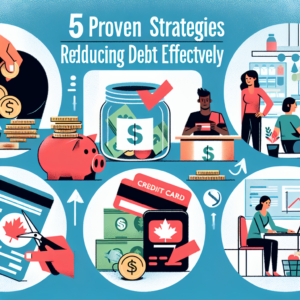In today’s financial landscape, managing debt can be a daunting task for individuals and businesses alike. As the burden of debt accumulates, individuals often find themselves exploring various strategies to regain control over their finances. Two popular options for managing debt are debt consolidation and debt restructuring. Each approach has its unique advantages and challenges, making it essential to understand the nuances of both before making a decision. This article aims to clarify the distinctions between debt consolidation and restructuring, providing insights to help individuals choose the option that best suits their financial situation.
Understanding Debt Consolidation: Benefits and Drawbacks
Debt consolidation is the process of combining multiple debts into a single loan, typically with a lower interest rate or more favorable repayment terms. One of the primary benefits of debt consolidation is the simplification of payments. Instead of managing several different payments each month, individuals can streamline their obligations into one manageable monthly payment. This not only reduces the stress associated with juggling multiple creditors but can also lead to better organization of finances.
Another significant advantage is the potential for cost savings. By consolidating high-interest debts, such as credit cards or personal loans, into a single loan with a lower interest rate, borrowers can save money on interest payments over time. Additionally, debt consolidation can improve credit scores by reducing the credit utilization ratio, which is a key factor in credit scoring models. This improvement can lead to better terms on future loans and mortgages.
However, debt consolidation is not without its drawbacks. One of the primary concerns is the risk of accumulating more debt. Borrowers may be tempted to utilize available credit again after consolidating their debts, leading to a cycle of debt that can be difficult to escape. Furthermore, consolidating debt may extend the repayment period, resulting in higher overall interest payments in the long run. Individuals must also be cautious to ensure they choose a reputable lender, as predatory lending practices can exacerbate financial woes rather than alleviate them.
Exploring Debt Restructuring: Key Considerations and Impact
Debt restructuring involves renegotiating the terms of existing debts, often with the help of creditors. This strategy is commonly used by businesses facing financial difficulties, but it can also apply to individuals with significant debt burdens. One of the key benefits of debt restructuring is the potential for reduced payments, lower interest rates, or extended repayment periods. By negotiating new terms, borrowers may find a more sustainable repayment plan that aligns better with their current financial situation.
Another significant consideration in debt restructuring is its impact on credit scores. While it may not have the same immediate positive effect on credit as debt consolidation, successful restructuring can lead to improved creditworthiness over time. By meeting restructured payment agreements, debtors can demonstrate their commitment to repaying their obligations, which may eventually contribute to a more favorable credit rating.
However, debt restructuring also comes with its own set of challenges. The negotiation process can be complex and time-consuming, often requiring the assistance of financial advisors or legal experts. Additionally, creditors are not obligated to agree to restructuring proposals, and they may impose strict conditions that could be difficult for debtors to meet. Lastly, the repercussions of a failed restructuring attempt can be severe, potentially leading to bankruptcy or further financial distress if the borrower is unable to adhere to the new terms.
Choosing between debt consolidation and restructuring is a significant decision that can profoundly impact an individual’s financial future. While both options offer pathways to manage debt more effectively, it’s crucial to assess personal circumstances, including the total amount of debt, interest rates, and individual financial behaviors. Debt consolidation may be more suitable for those looking for simplicity and potential interest savings, whereas debt restructuring might serve individuals or businesses seeking more tailored solutions to their financial challenges. Ultimately, understanding these options and consulting with financial professionals can lead to a more informed decision that paves the way for a healthier financial future.



